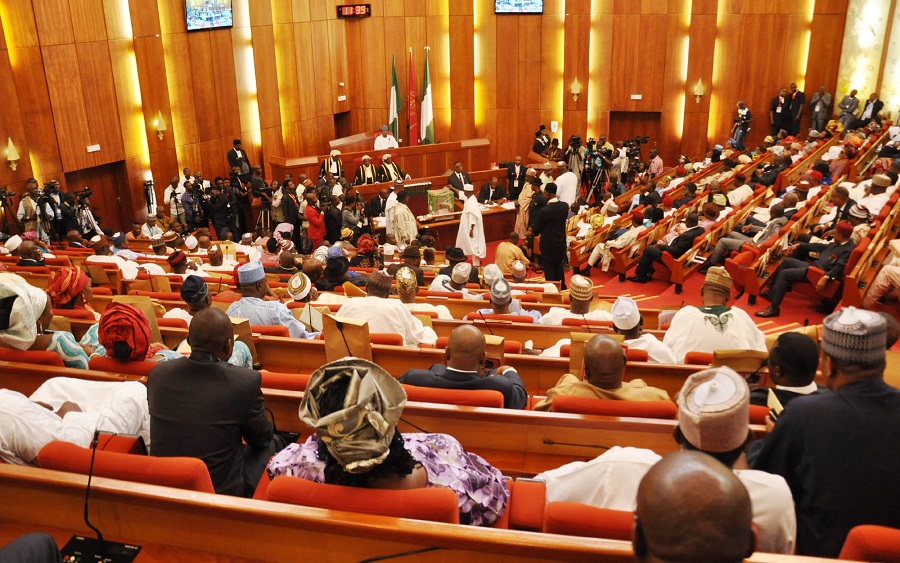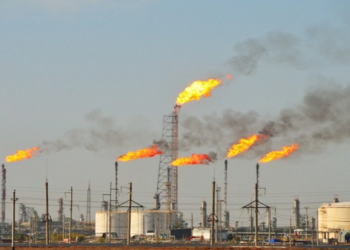A member of the Nigerian Senate stated yesterday during plenary that according to the Nigerian National Petroleum Corporation (NNPC), Nigeria lost N197 billion in revenue to gas flaring last year.
A Senator representing Rivers West, Mrs Betty Apiafi, in a motion titled: “The need to monitor the Nigerian flare commercialization programme towards ending Gas Flaring by 2020,” advised the Nigerian Government to review and recommend a penalty for non-compliance with flare out directives in line with global best practice.
Mrs Apiafi, while presenting the motion stated that gas flaring is the burning of natural gas that is associated with the extraction of crude oil and according to data from the World Bank Global Gas Flaring Reduction Partnership 2018, Nigeria is the 6th largest gas flaring country globally and the second-largest in Africa after Algeria.

The senator said that flaring of gas is illegal and that the Senate should pay more attention to the huge revenue loss accruing to flaring of gas. She also urged the Federal Government to diversify from crude oil to natural gas production.
“Gas flaring which action has indeed been illegal since 1984, though most of the laws are subjective.
“Subject to subsection (2) of this section under the Associated Gas Re-injection Act, 2004 states, that no company engaged in the production of oil or gas shall after 1 January 1984 flare gas produced in association with oil without the permission in writing of the Minister.
“Flaring of associated natural gas is quite simply burning money. In 2018 alone, according to data obtained from the Nigerian National Petroleum Corporation (NNPC), oil and gas firms operating in the country flared a total of 215.9 billion standard cubic feet (SCF) of natural gas amounting to a revenue loss of over N197billion.
“Nigeria has the largest natural gas reserve in Africa and ninth-largest in the world. Nigeria’s gas reserves are about three times the value of her crude oil reserves with a value of around 202 trillion cubic feet (TCF) of proven Natural gas reserves but despite having the largest gas reserves in Africa, only about 25% of those reserves are being produced or are under development today.”
[READ MORE: Senate reintroduces ‘social media use’ bill, to impose 3 years imprisonment, N10 million fine]
Meanwhile, the health hazard caused in the Niger Delta region by the flaring of gas is even more worrisome as it has been causing terrible harm since the 1960s.
“Gas flaring results in the release of methane which is accompanied by other greenhouse gases that account for about 50per cent of all industrial emissions in the country and 30per cent of the total CO2 emissions which are harmful to humans, the economy and the environment.”






















